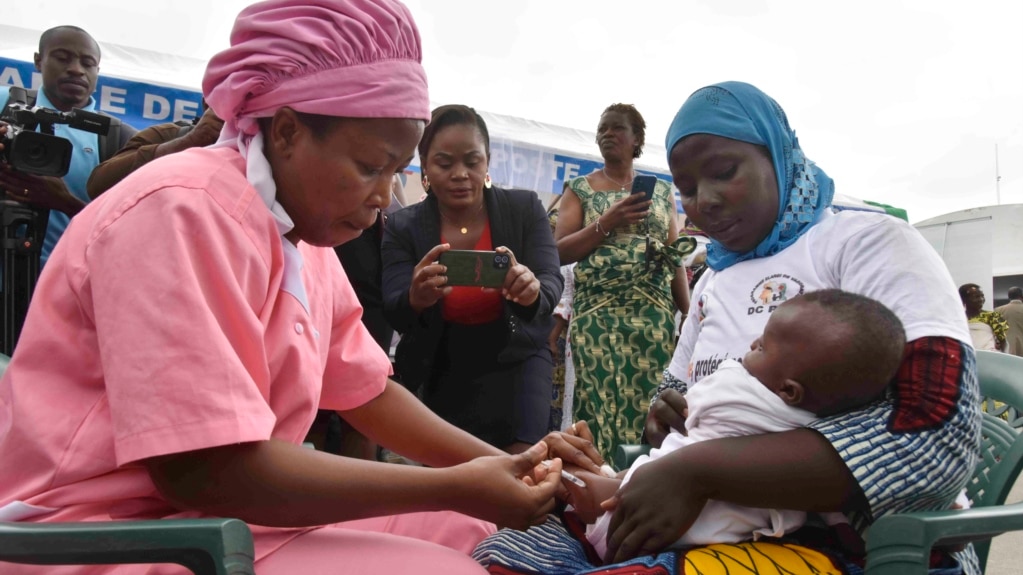Health workers in Ivory Coast have launched the country’s first child vaccination program against malaria.
The effort aims to reduce cases of the mosquito-spread disease, which has become one of Africa’s biggest killers.
Officials in the West African nation said the program is designed to cover about 250,000 children under the age of two. The three-shot vaccine was developed by Britain’s Oxford University. The World Health Organization (WHO) approved the vaccine last October.
Research has shown the vaccine to be more than 75 percent effective at preventing severe disease and death during the first year. A second shot, called a booster, aims to extend the protection for at least another year.
India’s Serum Institute has already made 25 million doses of the Oxford vaccine. It says it plans to make at least 100 million each year. The cost is $4 per dose.
More than 95 percent of the world's estimated 249 million yearly malaria cases and 608,000 deaths happen in Africa. The disease most often affects children under the age of five, as well as pregnant women.
Pierre Demba is Ivory Coast's health minister. He told reporters the malaria vaccine launch demonstrates the government's desire to invest in the country's children. "They are the future of our country,” he said.
Adrian Hill of Oxford University said in a statement that the effort “marks the start of a new era in malaria control.” He added that he hopes the shot will soon be available to all countries in Africa who want to use it.
Ghana, Nigeria, Burkina Faso and the Central African Republic are among the nations that have already approved the vaccine. Other countries, including Cameroon, have begun widespread vaccination programs.
Alice Kanga was one of many mothers who brought children to get vaccinated. She told reporters from The Associated Press, “It’s really important for the children, for their health."
In one poor neighborhood in the city of Abidjan, many women waited with their babies for shots, the French news agency AFP reported.
One mother brought her eight-month-old daughter, Awa. Sitting on her mother's knees and held tightly between her arms, the child cried while preparing to receive her first dose. "I'm happy,” Awa's mother said with a smile. “I have seen all the mothers who have come to be vaccinated against malaria."
Officials from the WHO have warned that even with the new vaccination campaign, other measures should continue to be taken to stop disease spread. These include spraying with chemical insect killers and using bed nets for protection.
I’m Bryan Lynn.

